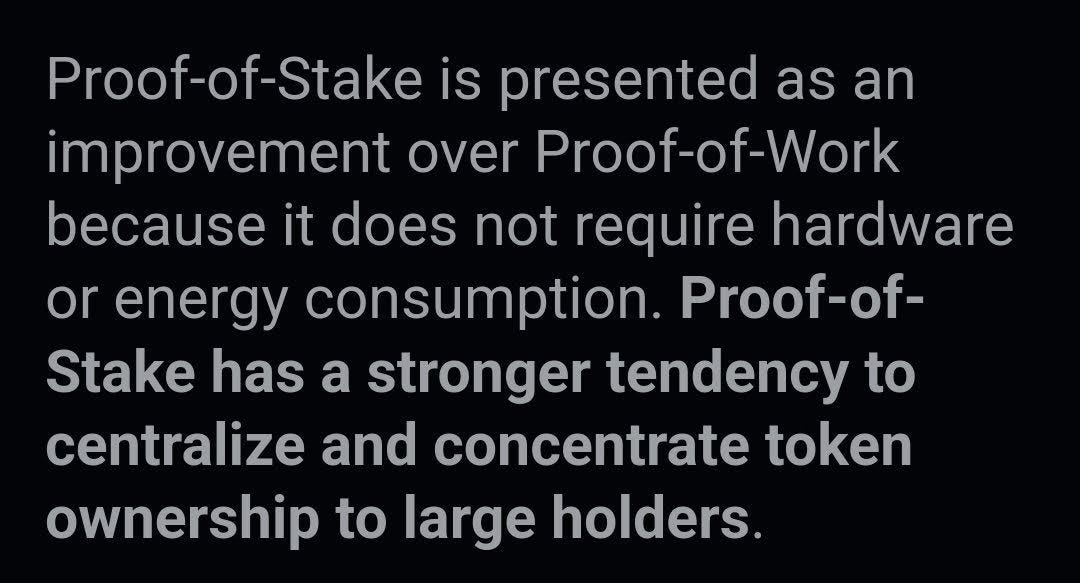Proof of Stake (PoS) is often considered to be more centralized than other consensus mechanisms like Proof of Work (PoW) due to several key characteristics.
In PoS, validators are chosen to create new blocks and validate transactions based on the amount of cryptocurrency they hold and are willing to "stake" as collateral. This is in contrast to Proof of Work (PoW), where validators (miners) compete to solve complex mathematical puzzles to create new blocks.
PoS can be considered centralized in several aspects:
Wealth Concentration:
In PoS, validators are chosen to create new blocks and validate transactions based on the amount of cryptocurrency they hold and are willing to "stake" as collateral. This means that those with more wealth have more influence over the consensus process.The Rich Get Richer:
Since rewards in PoS are distributed based on the amount of cryptocurrency held as collateral, those who hold more cryptocurrency receive more rewards. This leads to a positive feedback loop where the wealthy accumulate even more wealth, potentially concentrating power over time.Sybil Attacks:
PoS systems are vulnerable to Sybil attacks, where a single entity can create multiple fake identities to control a significant portion of the network's resources. This can lead to centralization if a small number of actors control a large portion of the staked tokens.Economic Centralization:
In PoS, validators are economically incentivized to act in the best interest of the network. However, this can lead to centralization as large stakeholders have more influence and control over the network's direction.Reduced Accessibility:
PoS can be more exclusionary, as it often requires participants to hold a minimum amount of cryptocurrency to become a validator. This can limit the number of participants in the consensus process, potentially leading to centralization.
In summary, while PoS offers advantages such as energy efficiency over PoW, it has serious centralization risks. The concentration of wealth and power among a few validators, along with the potential for collusion, can lead to a centralized network compared to the ideals of decentralization in blockchain technology.
Sources:
https://download.wpsoftware.net/bitcoin/pos.pdf
https://www.reddit.com/r/ethereum/comments/6d1mca/proof_of_stake_leads_to_centralization_with_worse/
https://www.imperva.com/learn/application-security/sybil-attack/#:~:text=
https://beincrypto.com/ethereum-centralization-proof-of-stake/
https://www.quora.com/Why-does-proof-of-stake-invite-centralization#:~:text=Proof-of-Stake
https://river.com/learn/proof-of-work-pow-vs-pos-proof-of-stake/




